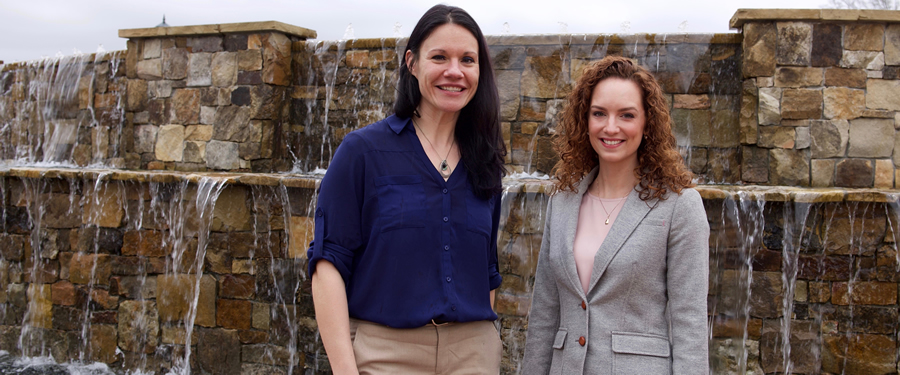
Bummed out by ongoing work stress? Tempted to reach for yet another cup of coffee to cope? Resist the temptation—unless you want to darken an already gray mood to pitch-black, according to a UNC Charlotte study on how caffeine affects people dealing with chronic stress.
Researchers Lydia Roos, who is pursuing a doctoral degree in the Health Psychology Program, and Jeanette Bennett, associate professor in the Department of Psychological Science, released the study in March at the American Psychosomatic Society meeting in Vancouver.
The researchers offered 126 study participants either a caffeine pill equal to two to three cups of coffee or a placebo pill with no caffeine. After waiting 30 minutes for the caffeine to be absorbed in the bloodstream, participants looked at a series of photos designed to elicit positive or negative emotions. The positive images showed laughing babies, an older affectionate couple and similar images. A graphic view of thumb surgery and police in protective gear at a riot were among the negative photos. Each participant rated each photo for how much it evoked a positive or negative reaction, using a scale of one to nine.
One week later, participants returned to take pills again, but those who received caffeine the first time were given placebos on the second visit, while the earlier placebo-takers had caffeine. As with the first visit, they viewed the photos and rated them on their negative or positive reactions. They also completed questionnaires about their levels of chronic stress and its causes.
People who had reported more chronic stress rated both the negative and positive images more negatively when they had caffeine on board than did people who indicated they faced less stress.
“Caffeine seems to create a negatively biased lens that they’re seeing the world through,” Roos said.
A deeper look at the survey results showed that work stress—feeling like there are too many demands at work and that the individual was unable to meet them—was driving the chronic stress.
“Caffeine is like a double whammy if you’re already overextended at work,” Bennett said. “Stress influences our perceptions. It can focus our attention on the negative. Caffeine appears to increase that and leads us to react with more negative emotions.”
This may be because chronic stress activates the amygdala, a structure in the brain that warns us when a threat looms, Roos stated. Like stress, caffeine revs up the amygdala, so perhaps it amplifies the sense of threat and dials one’s emotions even further over to the negative side, she added.
The solution is not necessarily to stop drinking coffee, the researchers said.
“Most of us use it, and when we’re stressed we often drink more, but awareness of this is key,” Bennett stated.
People who work in stressful work environments may be wise to limit their caffeine because of the unintended consequences of amplifying their negative emotions, Roos suggested. Those who work in a mellower environment, on the other hand, may be less at risk from downing that extra cup.
Bennett, who joined UNC Charlotte in 2012, created the StressWAVES Biobehavioral Research Lab. Specifically, she studies the effects of psychological, psychosocial and pharmacological stress on neuroendocrine and immune systems and ways to improve communication between the two systems across the lifespan in healthy and clinical populations.
In addition to her graduate studies, Roos manages research projects in the StressWAVES lab. She researches interpersonal stress, particularly in the context of close relationships and its effects on perceived stress, physiological stress reactivity, and immune function. She considers how individual differences such as motivations in social contexts and emotion regulation strategies impact responses to stress, and the downstream effects on psychological and physical health and well-being. Roos also earned her master’s degree in psychology from UNC Charlotte and recently received the P.E.O. International Scholarship, a competitive merit-based award.
The American Psychosomatic Society, founded in 1942, is an international multidisciplinary academic society that publishes the journal Psychosomatic Medicine. Its membership totals more than 700 academic scientists and clinicians in medicine, psychiatry, epidemiology, health psychology and allied health services.
Photo: Jeanette Bennett and Lydia Roos.